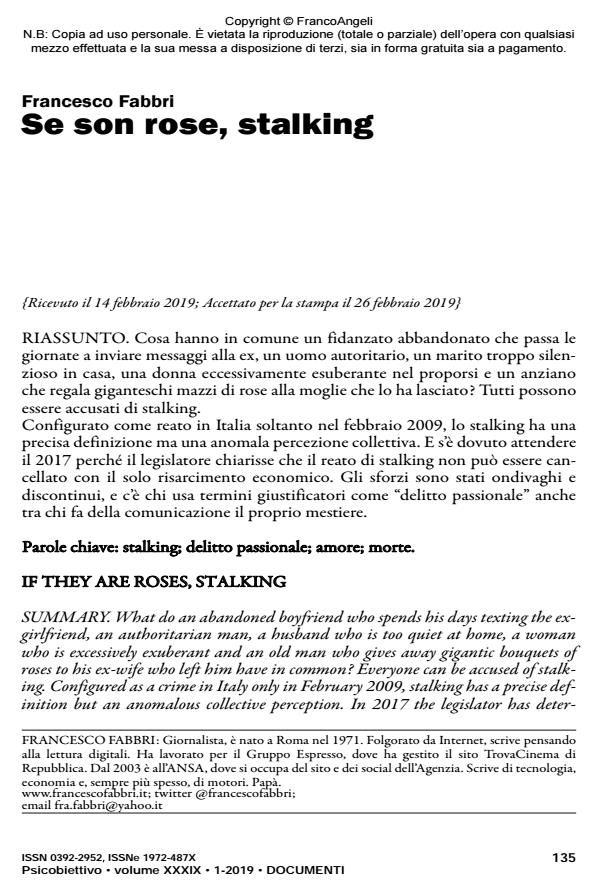If they are roses, stalking
Journal title PSICOBIETTIVO
Author/s Francesco Fabbri
Publishing Year 2019 Issue 2019/1
Language Italian Pages 9 P. 135-143 File size 106 KB
DOI 10.3280/PSOB2019-001013
DOI is like a bar code for intellectual property: to have more infomation
click here
Below, you can see the article first page
If you want to buy this article in PDF format, you can do it, following the instructions to buy download credits

FrancoAngeli is member of Publishers International Linking Association, Inc (PILA), a not-for-profit association which run the CrossRef service enabling links to and from online scholarly content.
What do an abandoned boyfriend who spends his days texting the ex-girlfriend, an authoritarian man, a husband who is too quiet at home, a woman who is excessively exuberant and an old man who gives away gigantic bouquets of roses to his ex-wife who left him have in common? Everyone can be accused of stalking. Configured as a crime in Italy only in February 2009, stalking has a precise definition but an anomalous collective perception. In 2017 the legislator has determined that the crime of stalking cannot be canceled entirely through financial compensation. The efforts so far have been wavering and discontinuous and there are those who still use justifying terms such as "crime of passion" even among those who consider themselves pioneers of communication.
Keywords: Stalking; Crime of Passion; Love; Death.
Francesco Fabbri, Se son rose, stalking in "PSICOBIETTIVO" 1/2019, pp 135-143, DOI: 10.3280/PSOB2019-001013